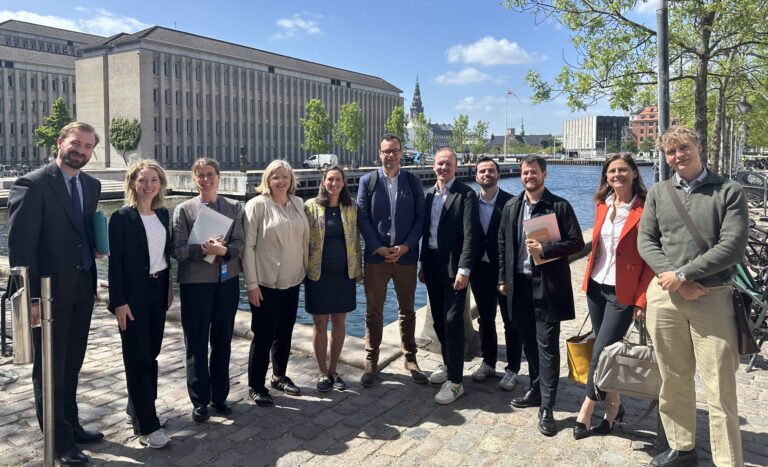Brussels, 15 April 2025 – The European Union (EU) is considering new rules in the name of “digital fairness”. But what’s needed isn’t more legislation, it’s better enforcement of the rules we already have.
While creating a fair and transparent digital environment is a goal we all share, piling on new rules is not the solution. The real challenge lies in enforcing and clarifying the protections that already exist.
Trust in products and services, whether offline or online, starts with robust consumer protection. European tech businesses have already invested heavily in compliance, often going above and beyond legal requirements at both EU and national levels.
If the aim is to improve consumer protection, we must ask: will new legislation bring tangible benefits for individuals? Complex regulation will make it harder, not easier, for consumers to exercise their rights. A better path forward is to raise awareness of existing rules and ensure that enforcement is clear, accessible, and effective.
At the heart of this debate lies the elusive concept of “digital fairness”. How does it differ from regular fairness? Are we truly facing novel risks, or simply new formats of familiar ones?
Topics like dark patterns, addictive designs, online advertising, and subscription management are often cited as justification for additional regulation. But European businesses already operate under a dense regulatory framework: General Data Protection Regulation (GDPR), the Digital Services Act (DSA), the Unfair Commercial Practices Directive (UCPD), the Unfair Terms in Consumer Contracts Directive (UTCCD), and the Consumer Rights Directive (CRD). The 2019 Omnibus Directive was meant to modernise these rules for the digital age; yet just two years after it came into force, policymakers are again proposing more laws.
Rather than layering on more obligations, especially in the online sector, where Europe is already struggling to stay competitive, the EU should focus on what works: consistent enforcement, legal clarity, and regulatory simplification.
This blog series will explore four key areas often mentioned in discussions around new “digital fairness” rules, and show how existing laws are already equipped to tackle them:
Dark Patterns: Why More Laws Won’t Help
Manipulative design tactics are already banned, including under the DSA regarding online platforms. More legislation would only add complexity without delivering real benefits, undermining the Commission’s own goals of simplification and competitiveness.
Online Designs: Smarter Enforcement for a Healthier Digital Space
Sweeping bans on engagement-driven design overlook how users actually interact with digital services. Holding online services to stricter standards than offline ones creates an uneven playing field.
Digital Advertising: What’s at Stake?
Advertising fuels the digital economy, allowing businesses of all sizes to reach the right audiences while keeping online services and content accessible for users. The future of digital advertising should be guided by better enforcement, not more red tape.
Subscription Cancellations: Enforce the Rules, Don’t Rewrite Them
Cancelling a subscription should be straightforward, and existing laws already mandate this. The challenge lies in enforcement, not regulation.
Throughout this series, the European Tech Alliance (EUTA) calls for a smarter, more tailored and future-proof approach: one that avoids unnecessary complexity, protects fair competition between online and offline businesses, and prioritises stronger cooperation among enforcement authorities.
The EU must prioritise cutting red tape and improving compliance mechanisms, not adding yet another regulation to an already overcrowded rulebook.
Build on the tools we already have
Before jumping to new rules, we must assess whether existing frameworks are doing their job. The Digital Services Act (DSA) already tackles many of the concerns being raised, including through its risk mitigation measures and forthcoming guidelines on minors. The issue is not a lack of regulation, it’s making sure the rules already in place are properly enforced.
Where gaps do exist, the solution should be targeted, focusing on specific features or outcomes, not blanket bans on entire business models. It’s important to recognise that different models and practices serve different purposes.
Invest in digital literacy
A smarter, long-term approach lies in empowering users.
Digital literacy helps people navigate online spaces with confidence and critical thinking. One key line of defence is to enable users to recognise harmful practices and make informed choices.
European tech calls for enforcement, not complexity
In recent years, the EU has adopted a suite of laws aimed at creating a safer, fairer digital space. These frameworks are only just beginning to take effect. Now is the time to implement and enforce them, not to rush into another round of legislation.
Let’s focus on making the existing frameworks work, ensuring that regulation protects consumers and supports a thriving, responsible digital ecosystem in Europe.
About the European Tech Alliance
EUTA represents leading European tech companies that provide innovative products and services to more than one billion users. Our 33 EUTA member companies from 15 European countries are popular and have earned the trust of consumers. As companies born and bred in Europe, for whom the EU is a crucial market, we have a deep commitment to European citizens and values.
With the right conditions, our companies can strengthen Europe’s resilience and technological autonomy, protect and empower users online, and promote Europe’s values of transparency, rule of law and innovation to the rest of the world.
The EUTA calls for boosting Europe’s tech competitiveness by having an ambitious EU tech strategy to overcome growth obstacles, making a political commitment to clear, targeted and risk-based rules, and enforcing rules consistently to match the globalised market we are in.
For media inquiries, please contact:
Victoria de Posson, EUTA Secretary General
E-mail: victoria@eutechalliance.eu
E-mail: info@eutechalliance.eu
Phone: +32 476 25 08 16
www.eutechalliance.eu




